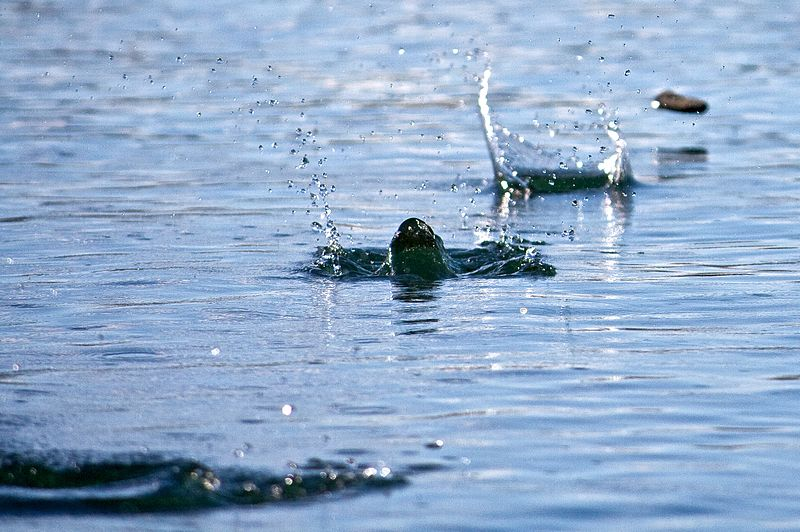If you’re not familiar with Apache Hudi, it’s a pretty awesome piece of software that brings transactions and record-level updates/deletes to data lakes.
More specifically, if you’re doing Analytics with S3, Hudi provides a way for you to consistently update records in your data lake, which historically has been pretty challenging. It can also optimize file sizes, allow for rollbacks, and makes streaming CDC data impressively easy.
Updating Partition Values
I’m learning more about Hudi and was following this EMR guide to working with a Hudi dataset, but the “Upsert” operation didn’t quite work as I expected. Instead of overwriting the desired record, it added a second one with the same ID. 🤔
After some furious searching, I finally came across this post about employing the right indexes in Apache Hudi. Specifically, this line caught my attention:
Global indexes enforce uniqueness of keys across all partitions of a table i.e guarantees that exactly one record exists in the table for a given record key.
Ah-ha! In the example, we’re updating a partition value. BY DEFAULT, the hoodie.index.type is BLOOM. I tried changing it to GLOBAL_BLOOM, and when updating the record, it wrote it into the old partition. It turns out that there is also a hoodie.bloom.index.update.partition.path setting that will also update the partition path. This defaults to true in Hudi v0.9.0, but I’m using v0.8.0 where it defaults to false.
Note that there is a performance/storage impact to enabling global indexes
So flipping that, I got the expected behavior. Using the example from the EMR docs, my code now looks like this:
Writing initial dataset
# Create a DataFrame
inputDF = spark.createDataFrame(
[
("100", "2015-01-01", "2015-01-01T13:51:39.340396Z"),
("101", "2015-01-01", "2015-01-01T12:14:58.597216Z"),
("102", "2015-01-01", "2015-01-01T13:51:40.417052Z"),
("103", "2015-01-01", "2015-01-01T13:51:40.519832Z"),
("104", "2015-01-02", "2015-01-01T12:15:00.512679Z"),
("105", "2015-01-02", "2015-01-01T13:51:42.248818Z"),
],
["id", "creation_date", "last_update_time"],
)
# Specify common DataSourceWriteOptions in the single hudiOptions variable
hudiOptions = {
"hoodie.table.name": "my_hudi_table",
"hoodie.datasource.write.recordkey.field": "id",
"hoodie.datasource.write.partitionpath.field": "creation_date",
"hoodie.datasource.write.precombine.field": "last_update_time",
"hoodie.datasource.hive_sync.enable": "true",
"hoodie.datasource.hive_sync.table": "my_hudi_table",
"hoodie.datasource.hive_sync.partition_fields": "creation_date",
"hoodie.datasource.hive_sync.partition_extractor_class": "org.apache.hudi.hive.MultiPartKeysValueExtractor",
"hoodie.index.type": "GLOBAL_BLOOM", # This is required if we want to ensure we upsert a record, even if the partition changes
"hoodie.bloom.index.update.partition.path": "true", # This is required to write the data into the new partition (defaults to false in 0.8.0, true in 0.9.0)
}
# Write a DataFrame as a Hudi dataset
(
inputDF.write.format("org.apache.hudi")
.option("hoodie.datasource.write.operation", "insert")
.options(**hudiOptions)
.mode("overwrite")
.save("s3://<BUCKET>/tmp/myhudidataset_001/")
)
Updating one partition row
from pyspark.sql.functions import lit
updateDF = inputDF.limit(1).withColumn('creation_date', lit('2021-09-22'))
(
updateDF.write.format("org.apache.hudi")
.option("hoodie.datasource.write.operation", "upsert")
.options(**hudiOptions)
.mode("append")
.save("s3://<BUCKET>/tmp/myhudidataset_001/")
)
Resulting Parquet Files
Now if we look at the Parquet files on S3, we can see that:
- The old partition has a new Parquet file with the record removed
- There is a new partition with the single record
aws s3 ls s3://<BUCKET>/tmp/myhudidataset_001/
2021-09-23 11:45:23 434901 tmp/myhudidataset_001/2015-01-01/cd4b4b74-13f7-4c1e-a7ce-110bba8e16fd-0_0-404-90423_20210923184511.parquet
2021-09-23 11:45:44 434864 tmp/myhudidataset_001/2015-01-01/cd4b4b74-13f7-4c1e-a7ce-110bba8e16fd-0_0-442-103950_20210923184526.parquet
2021-09-23 11:45:23 434863 tmp/myhudidataset_001/2015-01-02/578ea02b-09f0-4952-afe5-94d44d158d29-0_1-404-90424_20210923184511.parquet
2021-09-23 11:45:43 434895 tmp/myhudidataset_001/2021-09-22/d67c9b50-1034-44b2-8ec9-2f3b1dcbf26c-0_1-442-103951_20210923184526.parquet
Athena Compatibility
We can also successfully query this dataset from Athena and see the updated data as well!
SELECT * FROM "default"."my_hudi_table"

Note the the different _hoodie_file_name for record id 100.
Awesome! Now that I understand what’s going on, it makes perfect sense. 🙌
